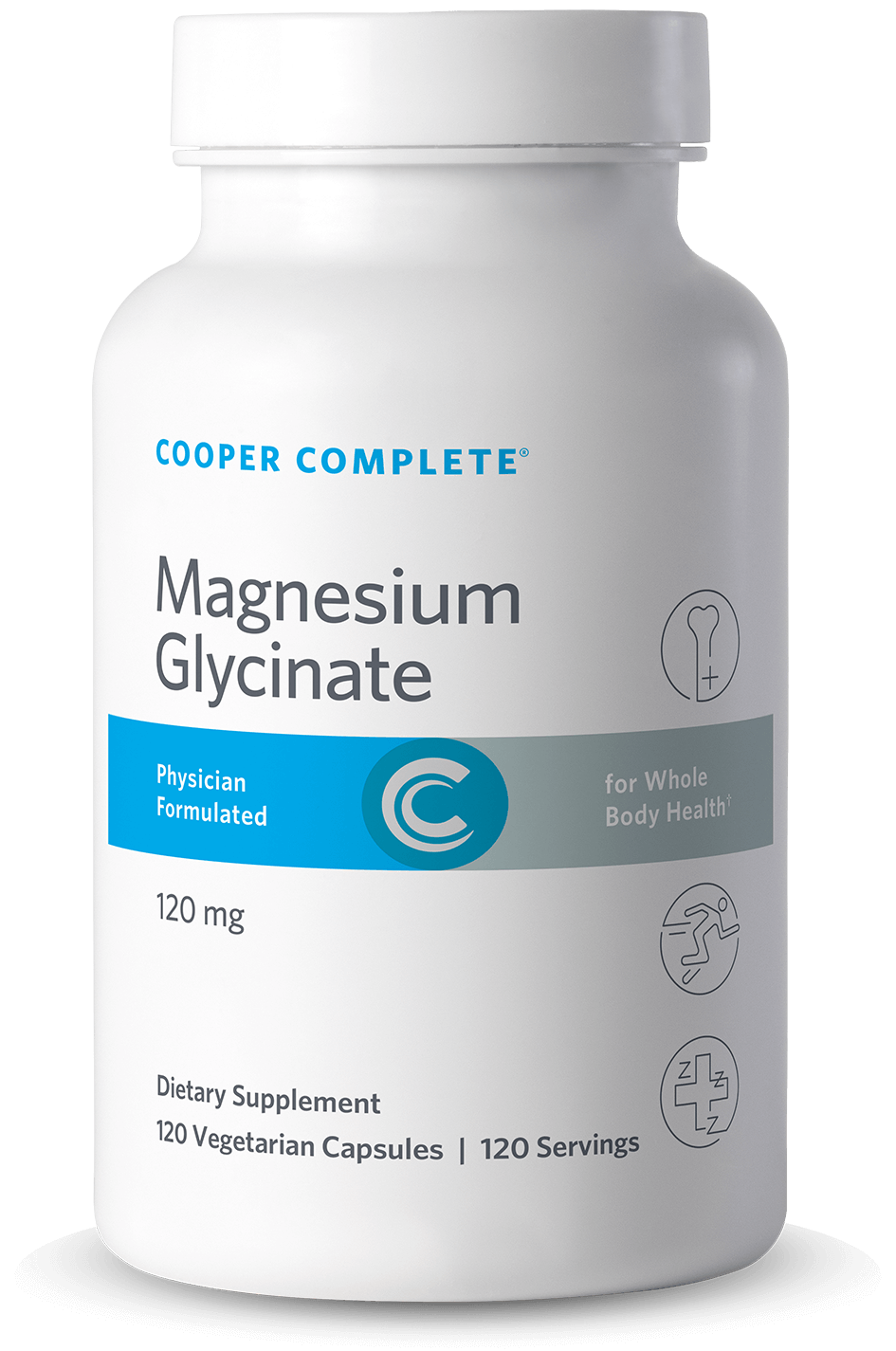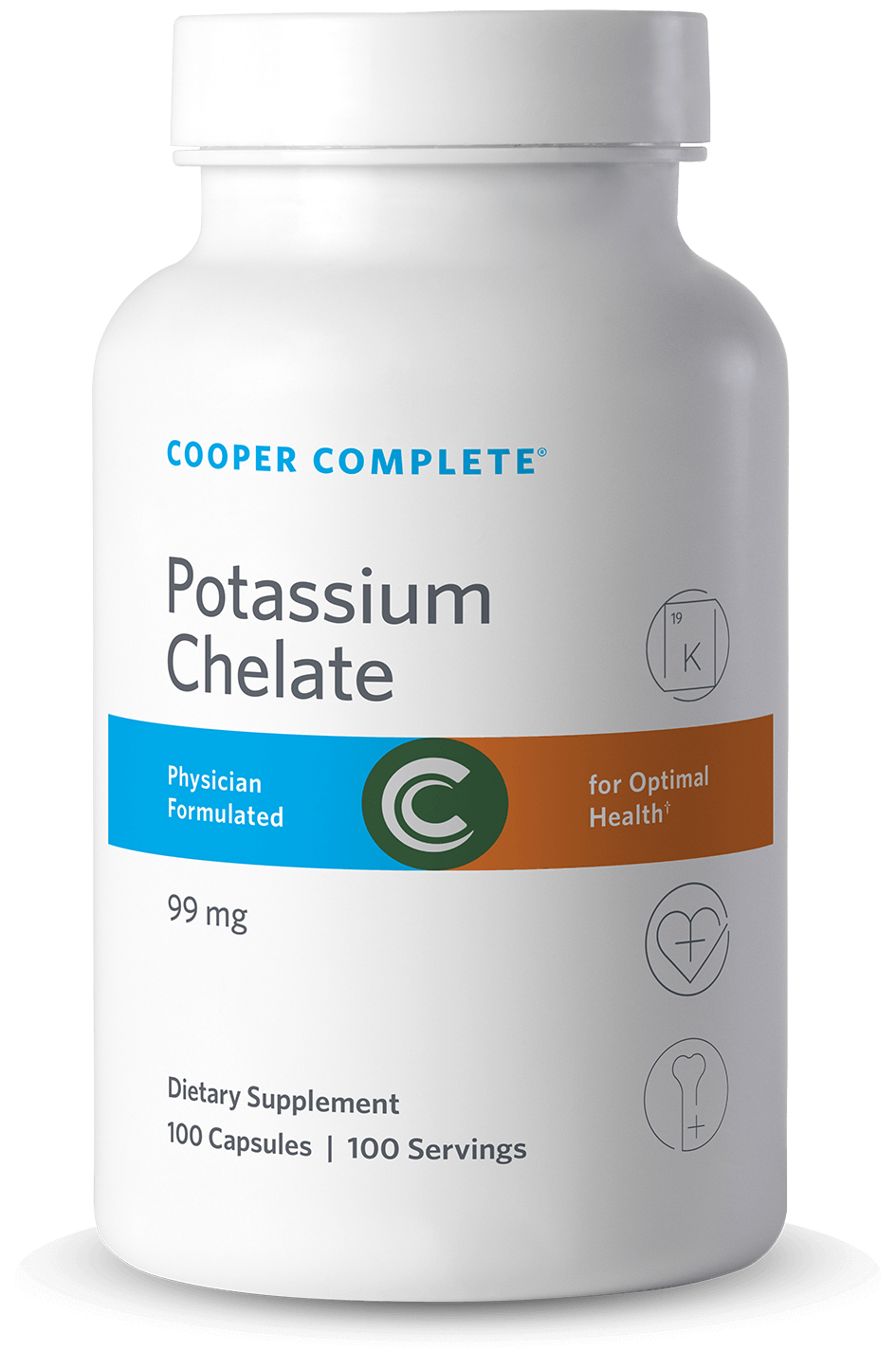Potassium Benefits for Heart Health, Not to Stop Cramps

Potassium deficiency has long been associated with muscle cramps, but research shows not eating enough potassium can also have a negative impact on heart health.
According to the Centers for Disease Control and Prevention, approximately 75 million people suffer from high blood pressure. That’s about one out of every three U.S. adults. The good news? There are steps you can take to reduce and even prevent high blood pressure.
How Potassium Improves Heart Health
High blood pressure is called the “silent killer,” as it often shows no signs or symptoms. In fact, many people don’t even know they suffer from it.
Potassium works with Sodium to Lower Blood Pressure
Eating foods low in salt and high in potassium can help lower your blood pressure. That’s because potassium lessens the effects of sodium. The more potassium you eat, the more sodium you lose through urine. Potassium can also help ease tension in your blood vessel walls, which helps lower blood pressure.

120 mg Magnesium Glycinate Supplement
Chelated magnesium glycinate (also known as magnesium bis-glycinate) is well absorbed without significant laxative effects.
$24.98 Add to cartStudies show increasing your potassium intake can help reduce the risk of other cardiovascular diseases, such as heart disease and stroke.
Numerous observational studies have found associations between low potassium intake and increased rates of fasting glucose, insulin resistance and type 2 diabetes.
Magnesium and Potassium Combine for a Strong Heart
Without magnesium, potassium and calcium would have a tough time moving through the body. Fortunately, transporting these minerals through cells is an important function of magnesium.
Magnesium allows potassium to improve the nervous system signals and relax the muscles receiving these signals. Equally important, this teamwork helps lower blood pressure by regulating the heart muscle’s output according to the signals it receives.
Myths Behind Potassium and Cramps
The common thought on the cause of a muscle cramp from exercise is dehydration or electrolyte imbalances according to athletic trainers. Yet, stretching is the most common treatment to relieve a muscle that is actively cramping. On top of this, a muscle cannot cramp if it cannot contract and stretching does not change levels of water, potassium or sodium in the body during a cramp.
How Potassium Affects Cramps through the Nervous System
Instead of thinking about cramps as a malfunctioning muscle, science now believes the likely culprit is a product of a malfunctioning nervous system and fatigue. Specific to exercise, research is pointing to the association of cramp-prone athletes with lower resistance to overstimulation of the muscle causing a cramp.

99 mg Potassium Chelate Supplement
Cooper Complete® Potassium Chelate Supplement contains 99 mg potassium to support already normal blood pressure, muscle-skeletal function, and nerve impulses.†
$16.48 Add to cartResearchers feel potassium and other electrolytes’ role in regulating the nervous system is better reasoning to the cause of muscle cramps. Rather than a drop in fluid levels causing spasms, an imbalance of electrolytes prevents the body from reacting to fatigue by overstimulating the tired muscle.
A review of exercise-associated muscle cramps reports growing evidence that supports overactivity of the nervous system in unison with fatigue to be the main causes “rather than dehydration or electrolyte deficits.”
Potassium for Prevention of Cramps
The main problem with trying to treat cramps using food is absorption. Eating a banana can take up to an hour to digest and influence nutrient levels. Unfortunately, this does little to help someone experiencing a cramp.
In a preventive scenario, eating potassium-rich foods before exercise does not prevent the occurrence of cramps.
Overall, the best treatment does not rely on one quick fix to prevent cramping. Instead, a well-balanced diet is key for the body to have the fuel it needs to reduce fatigue, an important factor in cramps. Issues with fatigue do not improve by focusing on only one nutrient as a magic bullet. Rather, proper hydration with plenty of fruits and vegetables will provide all of the nutrients needed.
Supplements, such as a multivitamin, should be taken in addition to a healthy diet filling any nutritional gaps.
Foods High in Potassium
Looking to increase your potassium intake? Reach for leafy greens such as kale, spinach and arugula, which are good sources of potassium. Leafy greens are part of the DASH diet, which is recommended by Cooper Clinic registered dietitian nutritionists. Other foods high in potassium are listed below.
Potassium in Foods |
|
|---|---|
| FOOD | AMOUNT PER SERVING |
| Apricots | 755 mg |
| Lentils | 731 mg |
| Acorn Squash (1 Cup) | 644 mg |
| Prunes | 635 mg |
| Baked Potato | 610 mg |
| Orange Juice(1 Cup) | 496 mg |
| Spinach (2 Cups) | 334 mg |
The National Institutes of Health defines adequate intake of potassium as receiving 2600 mg of potassium daily for women age 19 and older. Men age 19 and older should aim for 3400 mg daily. Achieving your daily dose of potassium is quite easy if you’re following a healthy diet.
If your diet isn’t enough, try supplementing with Cooper Complete Original Multivitamin, which contains 400 mg of potassium/serving.
Remember, it’s important to talk with your physician before starting a new supplement regimen.
